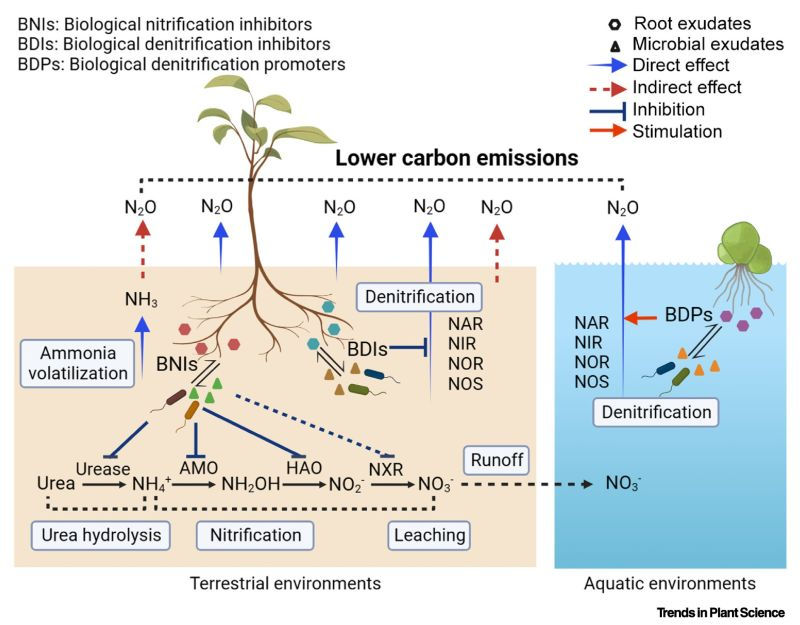What Does Sustainability Mean To You & Your Business
- craig7228
- Mar 4, 2025
- 4 min read
There has always been the trending words or phrases in agriculture - biological farming, agroecology, permaculture, regenerative, bio dynamic and the lists goes on.
But the base of it all is sustainability. The above mentioned are more of a process of farming that supposedly lead to improved sustainability.
So what does sustainability mean to you?
Being a sustainability focused company we are asked all the time what does it mean to us? And our answer is economic sustainability has to be at the top of the list followed closely by environmental sustainability.
Because with out one, you cannot have the other. Broke businesses don't sell or buy much, and poor, neglected environments don't allow for much production?
But has the statement 'sustainability' been bastardized or maybe underutilized.
I read an article - Three Words to Define Sustainability Thinking... And They're Not What You Think. By - Alec Tang, Partner and co-Lead Climate, Sustainability and ESG @ KPMG New Zealand. An exert of it below:
"More often than not, three words are used to define what we (individuals, business and broader society) mean when we use the term 'sustainability':
People. Planet. Profit.
It is clear though that whilst these terms have been broadly accepted as capturing the breadth of sustainability 'topics of interest', there are still challenges in mainstreaming their implementation into business decision-making and corporate strategy. Time and again, we see companies espousing corporate responsibility credentials exposed by sustainability risks and impacts due to the poor linkage between sustainability principles and decision-making.
I'm offering three new words to use when we try to define and implement sustainability thinking:
Earlier. Broader. Deeper.
To me, sustainability and sustainability thinking is all about the decision-making process and specifically: how we go about making the decisions that lead to change and positive, long-term outcomes. To truly integrate sustainability, we need it to be ingrained in our decision-making processes."
Do you agree?
But bringing this back to agriculture and daily practical examples is one that we get a lot of questions on from growers - "should we be integrating bio stimulant products and what is the cost of these sustainable products relative to conventional products". And the answer is it depends!!
It depends on what the growers goals are, what problems they are trying to solve and what their trying to achieve over what time frame. And on the cost front, our answer is - your trying to compare apples with oranges and looking at it the wrong way.
The key here in our 25 years experience is balance. Change can be difficult when you go from one extreme process or practice to another. But when you know why, really why you want or need to change, then the how and when is the easy bit. Its then not a big change, its more of an adjustment in practice over time that delivers the positive results.
On the cost front it can be managed through smart practices. Just like the above article says - to truly integrate sustainability, we need it to be ingrained in our decision-making processes.
So for example, if we have soil problems that creates greater stress on our crops, growers can look at the use of biostimulants to start fixing the soil problem and help the plants manage the added stress. This on top of our conventional fertiliser program will cost more per hectare and in most growers situation they don't do it because of this extra cost.
However, this is a prime example where, sustainability is not fully ingrained in the decision making process. Why? Because they are looking at half the picture, as their not looking at the conventional fertiliser program.
So if we were to make decisions on this field, farm production system through the full sustainability lens it would look something like this.
In their fertiliser nutrient program focus on balance:
Use an Enhanced Efficient Fertiliser (EEF) Nitrogen and Phosphorus, i.e. Black Urea® and Black DAP, reducing input costs by 25-30% for the same results
Do the right soil mapping and analysis and undertake variable rate of the EEF's saving even more money per hectare.
Understand soil restraints and apply timely foliars and not wasting kilograms per hectare on soil applied nutrients when plants cannot access them; incorporate the key biostimulants (Protan™ or C-Lift™) with the foliar fertilisers for their stress relief role in above problem example while also increasing the efficiency of the foliar fertiliser, saving application costs and making fertiliser more efficient.
The Full Sustainability Lens
By taking this full sustainability approach, (yet 3 simple adjustment steps) your looking at your field/farm cost per hectare, not per input unit cost, and because of these decisions making processes you can afford to start fixing problems. Now we are making the decisions that lead to change and positive, long-term outcomes.....while meeting economic and environmentally sustainability.
If you want to learn more about full cropping programs that we work with farmers around the globe, learn more here on our Grow Plan™.
Or click here to learn more about our EEF's Black Urea® and Black DAP™ and how they can give you greater sustainability.
Or here on the biostimulant for plant pain and stress relief with Protan™ Tech Sheet and C-Lift™ Tech Sheet.
Call us 1800 244 009 or Craig - 0427 908 329 or send us an email - service@advancednutrients.com.au, to learn more about our full range of products that growers are utilising to achieve their sustainable goals.
You can also visit - www.advancednutrients.com.au
We would welcome the opportunity to assist you.
.png)


Comments